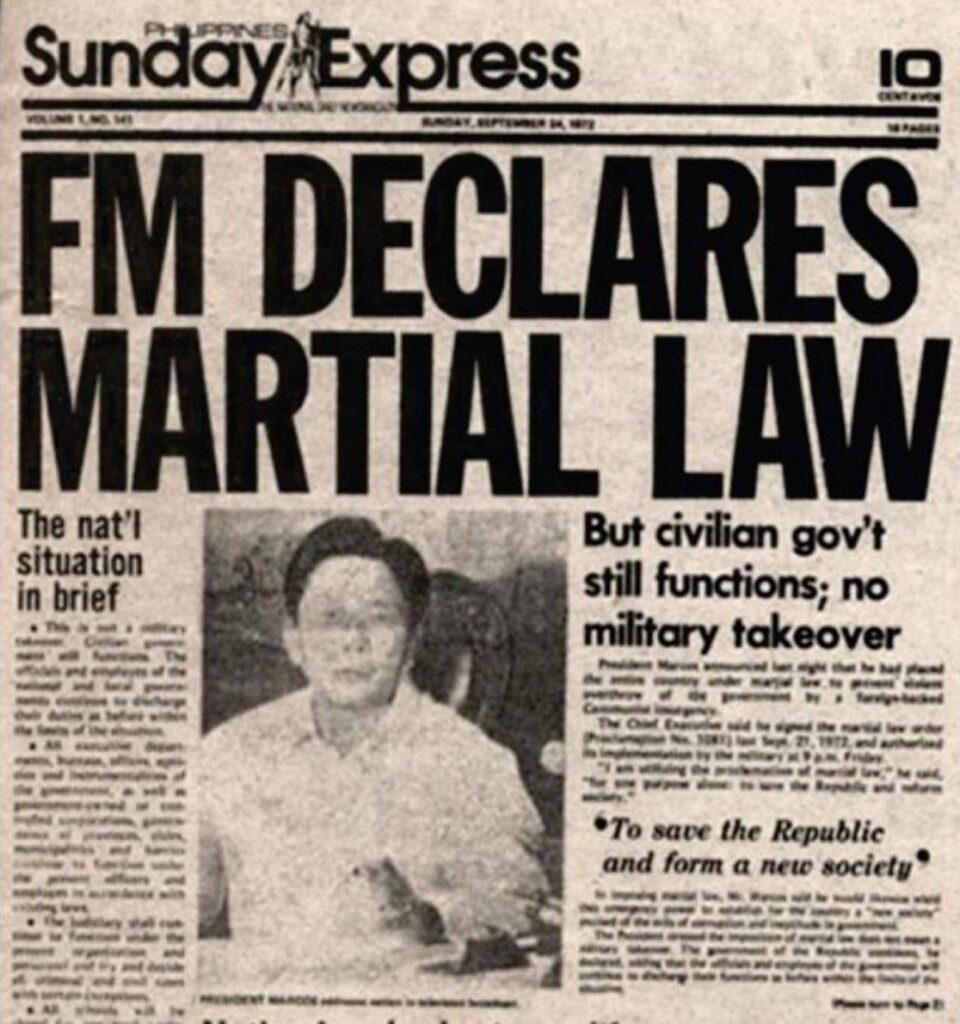Take Action
The story of the 11,103 and other Martial Law survivors are not bedtime stories that ought to scare away our dreams as a nation. Instead, beyond numbers and statistics, these real stories should strengthen our resolve to oppose those who don’t stand for social justice and human rights. As bearers of the stories of the survivors, we must fight to keep their truths, especially now when their stories are being denied.
There is a colossal push to make Martial Law appear as the best years of the country, that no human rights abuses took place. If some abuses were acknowledged, they were blamed on state enforcers acting on their own. The atrocities were state-sponsored, straight out of a playbook for any dictator who wants to stay in power. Today, it is a race for time as many survivors have gone ahead.
Take action by organizing a screening of 11,103 in your community, spreading the word about the film on your social media accounts, and following a quick guide on how you can contribute to the documentation of Martial Law history.

Organize a screening
Keep the stories of the Martial Law survivors and heroes alive by organizing a screening of 11,103 in your community. Contact our partner Active Vista via:

Spread the word about 11,103
Tell your friends and family about the film by sharing 11,103 material on your social media accounts.
Copy the following text:
In the documentary 11,103, hear brave survivors and heroes from around the country recount their experiences of the state-sponsored violence during Martial Law. Let us keep listening to, learning from, remembering, and protecting their stories! #11103Film #NeverForget #NeverAgain #MartialLawPH
Learn more about the film by visiting:
www.11103film.ph
facebook.com/11103film
https://youtu.be/BjcHYeQ4Tzw
Log in to your social media. Create a new post, paste the text, then share.
Document and share the stories of Martial Law survivors
Many heroes and survivors of Martial Law have advanced in age. Many have died before they were able to heal from their trauma, let alone tell their own stories. What can you do to protect and keep survivors’ struggles, and triumphs in our collective memory–how can you contribute to the documentation of Martial Law history? If you have elders, relatives, or family members who lived through Martial Law, we invite you to have them tell you their stories. If you have the means to, capture them on video.

If you are able to do both, feel free to follow this step-by-step guide on how to document them:
Step 1
Before scheduling the recording, strike a friendship with your storyteller so you gain their trust. Be sure that they are ready to talk so they don’t experience trauma again recounting their story.
Step 2
Have your storyteller put in writing their granting of consent that authorizes you to record, keep or share their story. Others may tell you to simply keep it and share when they feel ready.
Step 3
Prepare any recording device: a camera, smartphone, or audio device. If you are able to, have a separate mic for your camera or smartphone for crisper audio.
Step 4
Have your storyteller sit with you in a comfortable and quiet place. Turn off the electric fan or air conditioning system where you will record. When something loud interrupts–a siren, airplane, vehicle driving by, dogs barking–pause the interview.
Step 5
If you opt to use a camera, make sure to frame your storyteller nicely. You can choose to show them from the chest up for a portrait-style framing. It would be best to use a tripod to keep the shot steady. Check your camera’s viewfinder once in a while to ensure the storyteller is not out of focus.
Step 6
Hit record on your device, and ask your storyteller to share their own experiences during Martial Law. You can try the following questions and ask follow-ups:
- First, have them say their name.
- Where and how old were you when Martial Law was declared?
- How was life before Martial Law? What was memorable?
- What do you remember most when Martial Law was declared or when you heard about it?
- How and why were you a survivor of Martial Law? What was the worst you went through?
- How did you and your family cope?
- How did you deal with the trauma? Have you moved on?
- Has the person(s) who made you or your family suffer been penalized?
- Have you forgiven your captors?
- Do you feel you have closure?
- What does justice look like for you?
- What do you hope younger generations learn from your story?
Step 7
Only have your storyteller answer questions they are comfortable with. Do not rush or force them during the interview. If you think it may be getting too much for the storyteller to handle, stop the interview. When your recording is done, thank them for sharing their experiences.
Step 8
Back up the files of your recordings properly.
Step 9
With your storyteller’s go signal, share their narrative in any way or medium available. If you choose to post on social media, tag 11,103’s accounts so we can amplify their stories too.
In a time where history is being rewritten to erase and deny the experiences of Martial Law survivors, documenting and sharing their stories matters. Let us keep their narratives alive. Hopefully one day, we will all have a common truth.
